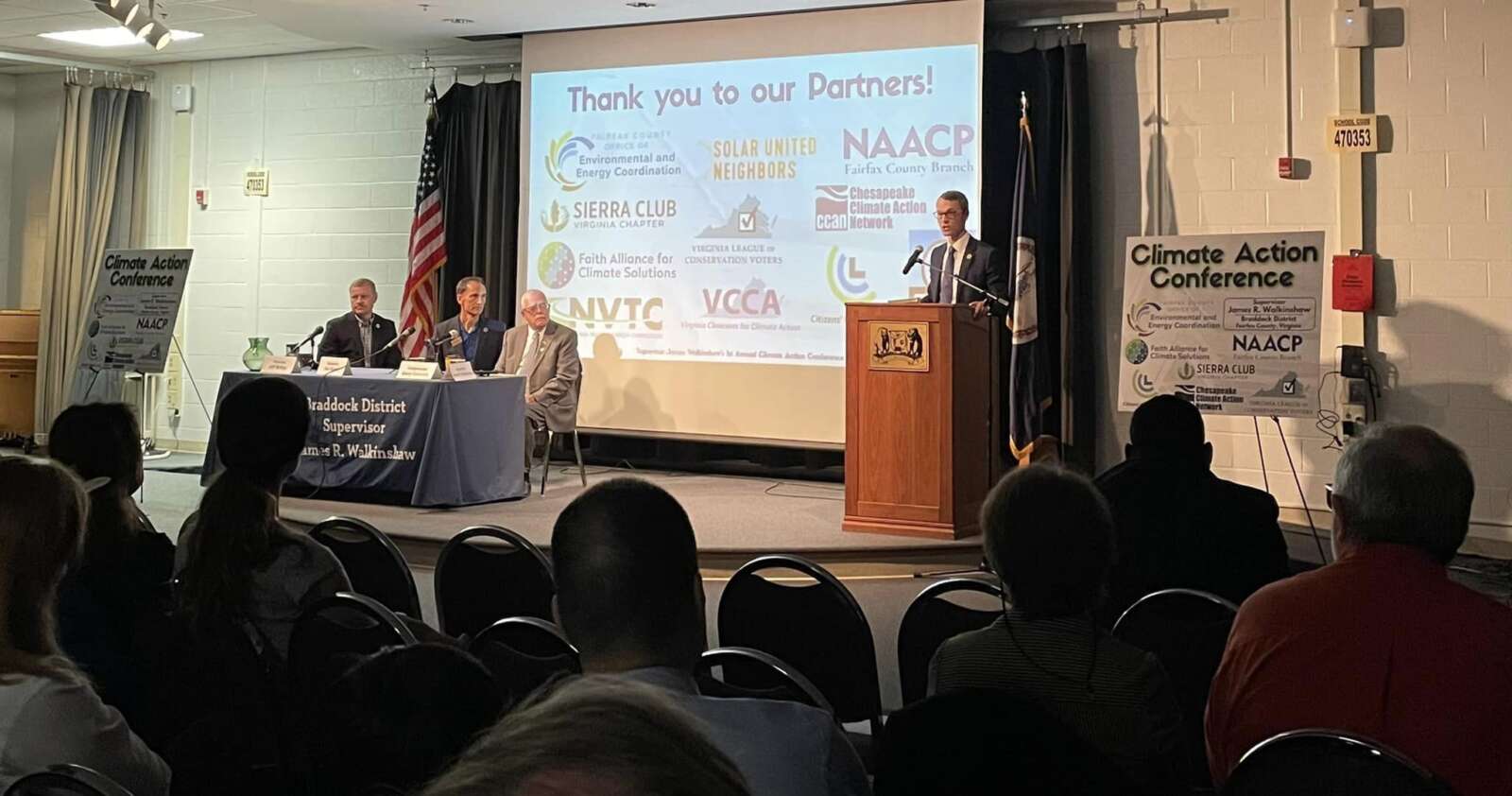
Fairfax County residents are underutilizing publicly-funded incentives to make their homes more green. That’s according to James Walkinshaw, Fairfax County Supervisor for the Braddock District, who hosted the county’s first Climate Action Conference on Sept. 30.
Greeting a crowd of community members gathered at Lake Braddock Secondary School, Walkinshaw said the focus of the conference was to give residents “all the actionable information and the tools you need to reduce your emissions and save money.”
“Whether you’re an individual, a family, a homeowner, a business leader, or a leader of a faith community or faith group, now is the time to take advantage of those opportunities,” Walkinshaw said.
Walkinshaw was joined by U.S. Rep. Gerry Connolly, Fairfax County Board of Supervisors Chair Jeff McKay and Mount Vernon District Supervisor Dan Storck.
The board members touted their record on the environment, including the hiring of 16 employees to address climate policies and piloting electric buses on both Fairfax Connector and Fairfax County Public Schools bus routes.
Sherie Cabalu, a homeowner in Vienna, came to the Climate Conference to learn about what she could do personally to combat climate change.
“I really wanted to just find out what we could do at a home level and a personal level,” Cabalu said. “You know, we hear about all the policies and everything, but how does that translate into actual, you know, doing something at the individual level?”
The event’s keynote speaker was Michael Forrester, assistant director of partnerships in the Office of State and Community Energy Programs at the Department of Energy. The mission of Forrester’s office is to share information at the community level about federal incentive programs that people can partake in to reduce their carbon footprint and save energy costs.
“We’re trying to activate local communities, and we’re trying to put these technologies in people’s homes to make a big significant difference on the nation’s carbon footprint,” Forrester said, adding, “Significant amounts of money are flowing from the federal government to local communities and to individuals’ homes.”
Low-income households can apply for the Weatherization Assistance Program, which offers home energy audits and makes necessary improvements and repairs to heating and cooling systems. The improvements are free of charge and may include work on windows and doors, roof repairs and HVAC sealing, thereby improving efficiency and lowering lower energy bills, according to Forrester.
Clean Vehicle Tax Credits are also available for Virginians to get back up to $7,500 for the purchase of a new electric vehicle, or up to $4,000 for a used electric vehicle. Restrictions apply based on the buyer’s annual income and the value of the vehicle.
Forrester also said homeowners are eligible to receive a tax credit equal to 30 percent of the cost of energy-efficient home improvements like solar panels and geothermal heat pumps. This long-term credit is part of the Inflation Reduction Act of 2022 and will be in effect for 10 years.
More incentives are coming soon to Virginians. Starting next year, Forrester said homeowners will be eligible for additional support. Under the Inflation Reduction Act’s Home Energy Rebate programs, homeowners will be able to receive up to $3,200 in additional tax credit for investment in more efficient heating systems, windows and doors. Read More

